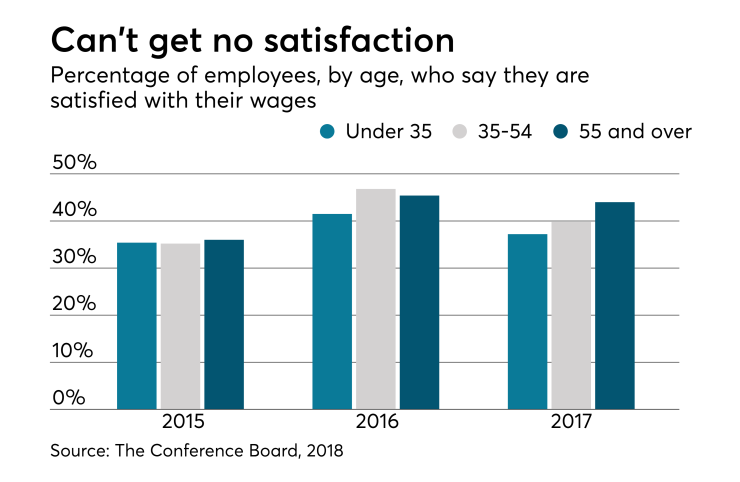(Bloomberg) -- U.S. employment costs rose by more than forecast in the third quarter as increases in private wages and salaries accelerated, indicating workers are gaining leverage in a tightening labor market.
The employment cost index, a broad gauge monitored by the Federal Reserve, increased 0.8% in the July-September period from the prior quarter, according to a Labor Department report Wednesday. That compared with the median estimate of economists for a 0.7% increase. The gauge was up 2.8% from a year earlier, matching the prior quarter as the fastest gain since 2008.
A separate report Wednesday showed U.S. companies added a greater-than-forecast 227,000 jobs in October, according to the ADP Research Institute.
The data suggest demand for workers remains strong and companies are offering better compensation packages to workers amid the lowest unemployment rate since 1969, reinforcing the Fed’s outlook for gradual interest-rate hikes to keep the economy from overheating. The report also gives President Donald Trump and Republicans another positive economic talking point ahead of next week’s midterm elections.
The government’s quarterly ECI reading -- which covers employer- paid taxes such as Social Security and Medicare in addition to the cost of wages and benefits -- offers a glimpse at how American workers are being compensated.

The latest reading shows momentum in worker compensation ahead of October wage figures due in Friday’s monthly employment report.
Average hourly earnings, a separate monthly measure of private- sector wages that can be influenced by shifts in industry employment and hours worked, have been accelerating very gradually in this expansion. The annual increase is expected to surpass 3% in October’s figures, which would be the first gain at that pace since 2009.
Wednesday’s report showed private-sector wages and salaries rose 3.1% in the third quarter from a year earlier, the best pace since 2008. The 3.1% annual gain in education and health services was the biggest in a decade, and transportation and warehousing pay got a 4.3% boost over the past year, the most since the three months ending September 2002. Information services were up at the fastest clip since the final quarter of 2016.
At the same time, overall benefits rose at a slower pace in the third quarter, increasing 0.4% from the prior period, following a 0.9% gain. They advanced 2.6% from a year earlier, compared with 2.9% in the second quarter.
Economists and investors expect the Fed to continue gradually raising interest rates, including a December increase that would be the year’s fourth.





